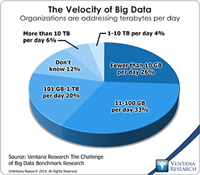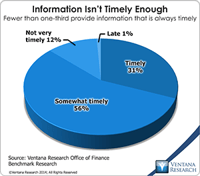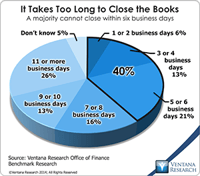Information technology enables a data-driven management style that was not feasible until powerful, affordable computers became generally available. There’s no bright line marking when this became possible; the process is ongoing. People were using financial analytics long before ENIAC, the first general-purpose computer, appeared, but the metrics available were not especially timely, broadly applicable to day-to-day situations or comprehensive enough to inform most management decision-making....
Read More
Topics:
Big Data,
Office of Finance,
Operational Performance Management (OPM),
Business Analytics,
Uncategorized,
Business Performance Management (BPM),
Customer Performance Management (CPM),
Financial Performance Management (FPM),
Sales Performance Management (SPM)
There were two noteworthy themes in SAP CEO Bill McDermott’s keynote at this year’s Sapphire conference. One was customer assurance; that is, placing greater emphasis on making the implementation of even complex business software more predictable and less of an effort. This theme reflects the maturing of the enterprise applications business as it transitions from producing highly customized software to providing configurable, off-the-rack purchases. Implementing ERP will never be simple, as I...
Read More
Topics:
Predictive Analytics,
SAP,
Operational Performance Management (OPM),
Uncategorized,
Business Performance Management (BPM),
Customer Performance Management (CPM),
Financial Performance Management (FPM),
Sales Performance Management (SPM),
Supply Chain Performance Management (SCPM)
In our Office of Finance benchmark research 60 percent of participants said it takes their companies six or more business days to complete their quarterly close; that exceeds the best practice benchmark of five days. Consultants, academics and vendors have stressed the importance of shortening the close for almost a quarter of a century. The main reason for doing so is to provide executives and managers with timely information about the company’s performance. Yet our research shows that it’s...
Read More
Topics:
Office of Finance,
Uncategorized,
Business Performance Management (BPM),
Financial Performance Management (FPM)













